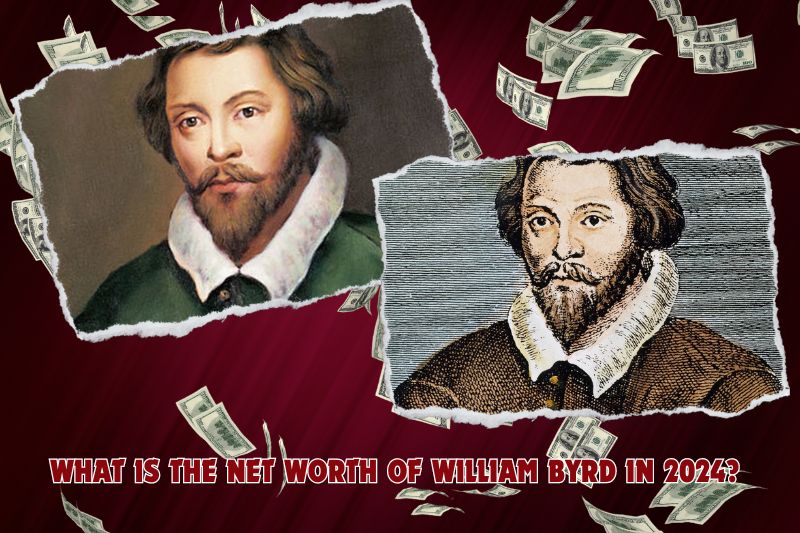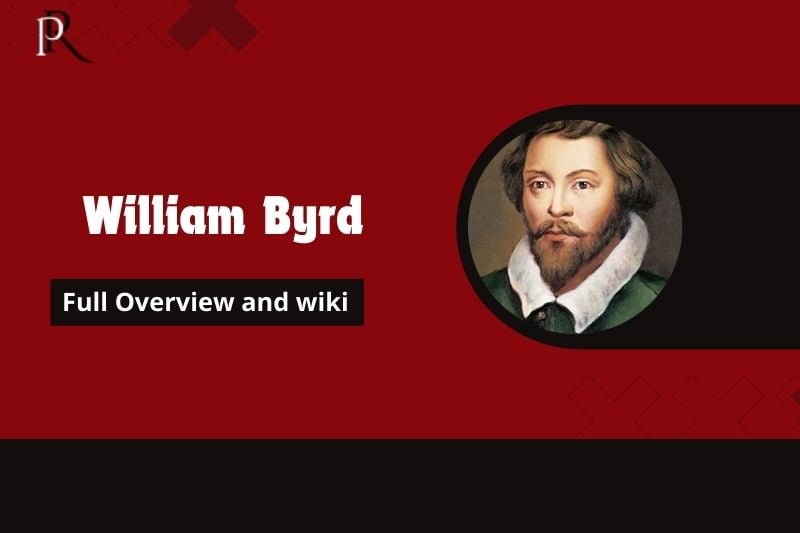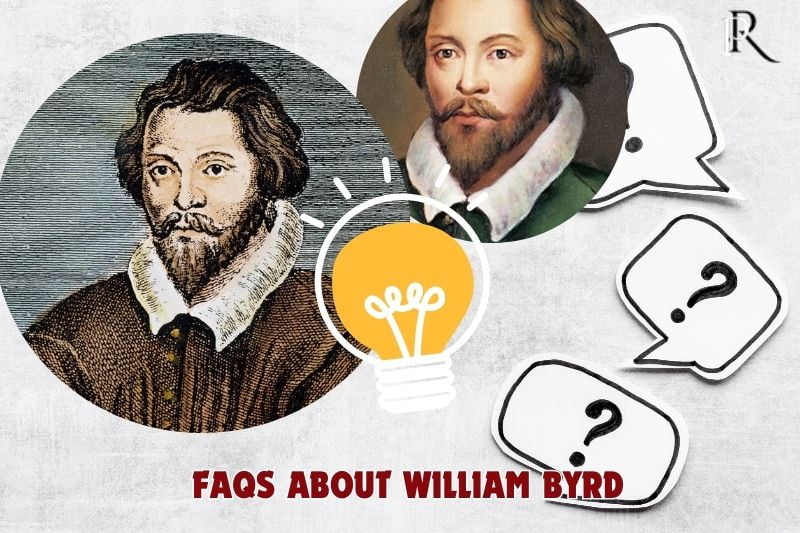Explore the fascinating world of William Byrd’s net worth. We dive into how this iconic figure amassed his fortune, the investments he made, and the financial decisions that marked his career.
This brief overview provides an overview of his financial status and development over the years.
Quick information
| TRUTH | DETAIL |
|---|---|
| Real name | William Byrd |
| Popular name | William Byrd |
| Sex | male |
| Date of birth | 1543 |
| Year old | Died in 1623, aged about 80 years |
| Parents | Thomas Byrd, Margery Byrd |
| Siblings | Symond Byrd, John Byrd (brothers) |
| Place of birth | Lincoln, UK |
| Nationality | English |
| Nation | English |
| Education | Likely choir singer at St. Paul, studied under Thomas Tallis |
| Marital status | Married |
| Sexual orientation | heterosexual |
| Wife/Wife/husband | Juliana Byrd |
| Children | At least seven children including Christopher and Elizabeth |
| Dating | do not apply |
| Net value | Significant assets at the end of life, exact amount unknown |
| Origin of wealth | Music composition, royal patronage |
| Height | do not apply |
What is William Byrd’s net worth in 2024?

Although it is difficult to accurately determine William Byrd’s net worth today, we can infer that he was relatively wealthy at the time of his death in 1623.
His wealth was accumulated through his successful career as a composer, the royal patronage he enjoyed, and his music printing monopoly with Thomas Tallis.
By comparison, contemporaries such as Thomas Tallis, Orlando Gibbons and Giovanni Pierluigi da Palestrina also acquired significant influence and wealth through similar means, but direct financial comparisons are speculative. due to lack of detailed historical financial records.
However, Byrd’s ability to maintain a comfortable lifestyle despite frequent fines for reusing shows a significant financial situation.
William Byrd Full Overview and Wiki

Contribution to Renaissance music
Byrd was not only a composer but also a true innovator in the English Renaissance. He explored and expanded the polyphonic forms that were the backbone of his sacred and secular productions.
His works are a testament to his deep attachment to the music and culture of his time.
The impact of Byrd’s Catholic faith on his musical compositions
His Catholic faith profoundly influenced his musical output, especially evident in the later part of his life when he composed primarily Catholic spiritual music. This was despite the prevailing Protestant environment, demonstrating his ability to combine religious beliefs and art seamlessly.
Roles and challenges in the Chapel Royal
Serving at the Chapel Royal, Byrd navigated the complexities of performing and composing in a Protestant institution while remaining personally Catholic.
His role here gives him access to the highest levels of society, increasing his reach and influence.
The meaning of music printing monopoly
The music printing monopoly that Byrd held with Tallis allowed unprecedented control over music distribution. This venture, although not very profitable, had a significant impact on the way music was popularized and preserved during and after their time.
Byrd’s interactions with other Elizabethan composers
Byrd’s relationship with other composers of his time, such as Thomas Tallis and John Dunstable, was marked by both collaboration and healthy competition. These interactions are important for the cross-fertilization of musical ideas and styles.
Legacy and influence
Byrd’s legacy is immense, influencing countless composers and musicians for generations to come.
His technique and composition remain the foundation of choral and polyphonic training, continually revered and performed today.
Personal life
He was not only a good composer but also a family man. Married to Juliana Byrd, he had at least seven children, reflecting a wealthy family life despite the challenges posed by his Catholic faith in a predominantly Protestant England.
His personal experiences and deep beliefs have greatly influenced his musical output, perfectly blending his personal and professional worlds.
Social media accounts
- Instagram: Not applicable
- Facebook: Not applicable
- Twitter: Not applicable
- Youtube: Not applicable
Frequently asked questions about William Byrd

Who is William Byrd?
He was an influential English Renaissance composer, known for his development of English madrigals and various works of sacred music.
When was William Byrd born?
His exact date of birth is unclear, but he was born around 1539/1540.
What are some of Byrd’s most notable works?
His important works include Cantiones Sacrae, Fitzwilliam Virginal Book, Gradualia, and Psalmes, Songs, and Sonnets.
Does Byrd have any royal connections?
Yes, he became a favorite of Queen Elizabeth I and enjoyed exclusive rights to music publishing with Thomas Tallis, notably their joint publication, Cantiones Sacrae.
What is Byrd’s religious affiliation?
Byrd was a devout Catholic, which influenced his writing and personal life during the Protestant Reformation in England.
Where did Byrd work?
He worked at a number of prestigious locations throughout his life, including Lincoln Cathedral and the Chapel Royal as a Gentleman of the Chapel Royal.
How did William Byrd’s religion influence his life and career?
His Catholic faith brought him into conflict with the Anglican authorities, causing him personal troubles, including accusations and scrutiny under reclamation laws.
When did William Byrd die?
He died on July 4, 1623.
Did Byrd teach any notable students?
That’s right, he taught a number of famous composers, including Thomas Morley, Peter Philips and Thomas Tomkins.
What is unique about Byrd’s musical style?
Byrd’s music is celebrated for his complex polyphonic style, his innovative integration of text and music, especially in his sacred compositions.
Conclusion
As we wrap up our discussion of William Byrd’s net worth, it is clear that his financial strategies are as diverse as his talents.
For more in-depth analysis and ongoing updates on his financial journey, follow Rachelparris.com, your go-to resource for celebrity financial insights.
Categories: Musician
Source: svlsf.edu.vn
